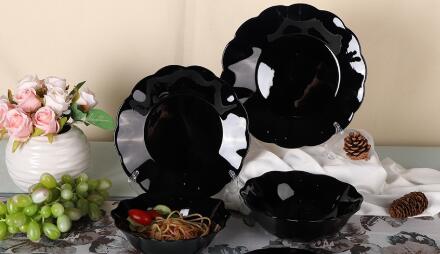Garbo Glassware’s glass cruet bottle for condiments
Pulished on Jun. 02, 2023The glass cruet bottle has a rich history that dates back centuries. Glass containers have been used for storing and serving various liquids since ancient times. The word "cruet" originates from the Old English word "crut," which means a small vessel for holding liquids. The concept of the cruet bottle as we know it today began to take shape during the Renaissance period.
During the Renaissance, glassblowing techniques advanced, enabling the production of more intricate and delicate glassware. Glass cruets became popular for serving oils, vinegars, and other liquid condiments on dining tables. They were highly valued for their functional and aesthetic qualities. The transparent nature of glass allowed people to see the contents clearly, ensuring proper identification and presentation.
Over time, the design of glass cruets evolved to include stoppers or lids to protect the contents from dust and contamination. These bottles often featured ornate shapes and embellishments, reflecting the artistic sensibilities of the era. Glass cruets became symbols of sophistication and refinement, adorning the tables of royalty, aristocracy, and affluent households.
Glass bottles are widely used for storing and dispensing various liquid condiments. Olive oil and vinegar, in particular, have been traditionally stored in glass containers due to their susceptibility to light and air exposure. Glass offers excellent protection against these elements, preserving the quality and flavor of these valuable ingredients.
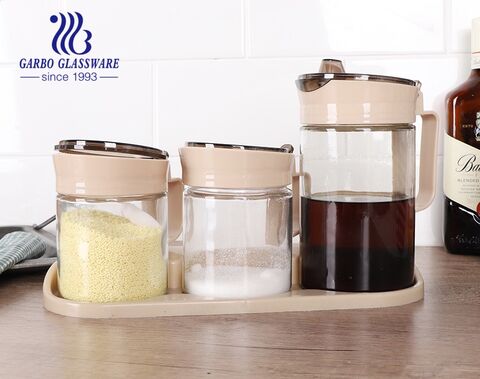
Glass bottles for olive oil and vinegar are often dark-colored, such as green or amber, to shield the contents from harmful UV rays. This helps prevent oxidation and extends the shelf life of the condiments. Glass also ensures that the flavors and aromas remain unaffected, delivering a pure and unadulterated taste experience.
In addition to olive oil and vinegar, glass bottles are ideal for a wide range of liquid condiments, including salad dressings, sauces, syrups, and marinades. The transparent nature of glass allows consumers to easily gauge the quantity and quality of the product. It also enables the display of vibrant colors and textures, enhancing the visual appeal of the condiments.
Glass bottles provide a secure and airtight seal, preventing leakage and contamination. They are easy to pour from and typically feature a drip-free spout or a dispenser cap for controlled pouring. The smooth surface of glass ensures effortless cleaning, ensuring that no residue or flavors are retained between uses.
Glass jars are widely used for storing and organizing various seasonings, including salt, sugar, herbs, spices, and other flavor enhancers. These jars offer numerous advantages over other materials, making them a popular choice among households and professional kitchens.
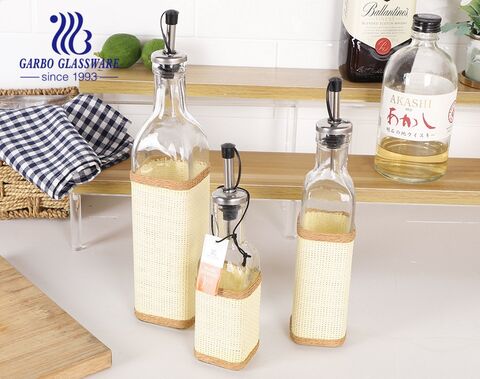
Glass jars provide a transparent and unobstructed view of the contents, allowing easy identification and selection. This makes it convenient to locate specific seasonings while cooking or baking. Glass also prevents the absorption of odors, ensuring that the flavors and aromas of the seasonings remain intact.
Glass jars are non-reactive, which means they won't interact chemically with the seasonings or alter their taste. They do not impart any foreign flavors or contaminants, allowing the natural flavors of the seasonings to shine through. Glass also offers a moisture-resistant barrier, keeping the seasonings dry and free from clumping.
Furthermore, glass jars provide excellent protection against pests and insects, ensuring the integrity of the seasonings. The airtight seal of glass jars prevents air and moisture from entering, preserving the freshness and potency of the seasonings for extended periods. Glass is also impermeable to light, safeguarding the seasonings from harmful UV rays that can degrade their quality.
Glass jars are easy to clean and maintain, as they do not retain odors or stains. They can be reused multiple times without compromising the quality or safety of the seasonings. Glass also offers the advantage of being recyclable, making it an eco-friendly choice for conscious consumers.
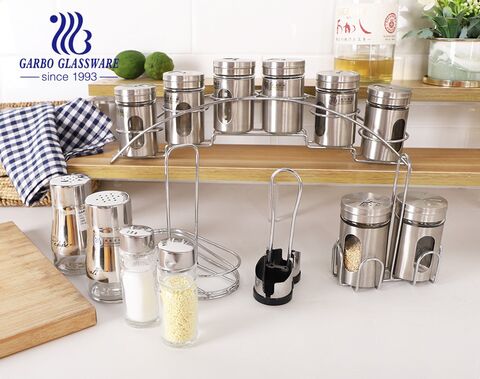
Using a glass cruet bottle for condiments offers several advantages that make it a desirable option for both households and food service establishments.
Firstly, glass cruets are cost-effective. Glass is an affordable material, making it a budget-friendly choice for storing and serving condiments. Glass cruets are durable and long-lasting, providing excellent value for money.
Glass is also an eco-friendly choice. It is a natural and sustainable material that can be recycled endlessly without losing its quality or purity. By opting for glass cruets, you contribute to reducing plastic waste and minimizing environmental impact.
When it comes to food contact safety, glass cruets are an excellent option. Glass is non-reactive and does not leach any harmful chemicals into the contents. This ensures that the condiments remain safe and free from contamination. Glass is also resistant to odor absorption, preserving the original flavors and aromas of the condiments.
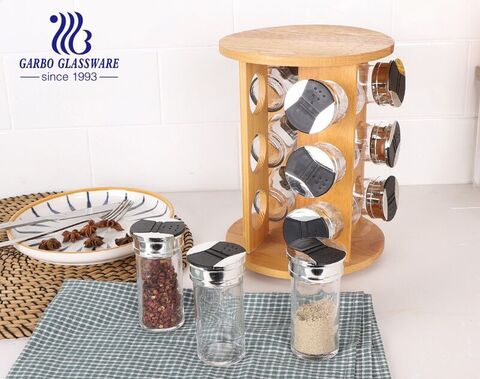
Cleaning glass cruets is a breeze. The smooth surface of glass allows for effortless washing, ensuring that no residue or flavors linger between uses. Glass is also dishwasher safe, saving you time and effort in maintaining cleanliness and hygiene.
Glass cruets offer excellent visibility, allowing you to showcase the vibrant colors and textures of the condiments. This enhances the visual appeal and presentation of your table setting or kitchen decor.
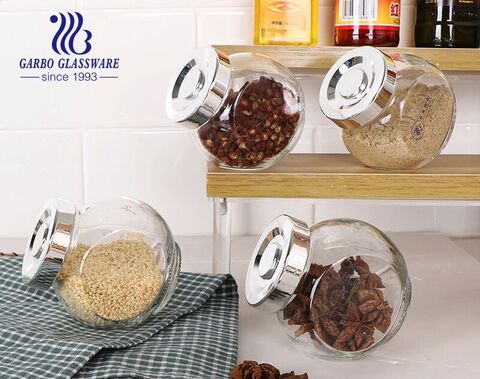
When a condiment in a glass cruet bottle runs out, there are a few ways to handle the situation:
Refill: If you have more of the same condiment available, simply refill the glass cruet bottle with the desired condiment. This allows you to continue using the same bottle and maintain consistency in your kitchen or dining area.
Clean and store: If you don't have more of the same condiment or wish to switch to a different one, empty the glass cruet bottle and clean it thoroughly. Wash it with warm, soapy water, rinse it well, and let it dry completely. Once dry, you can store the empty glass cruet bottle for future use or for different condiments.
Repurpose: If you no longer need the glass cruet bottle for condiments, consider repurposing it for other uses. It can serve as a decorative item, a container for homemade dressings or sauces, or a vessel for holding oils or vinegars for crafts or DIY projects. Get creative and find a new purpose for the glass cruet bottle to reduce waste and extend its lifespan.
Remember, glass is a durable and reusable material, so don't hesitate to find alternative uses for your glass cruets when the condiment runs out.








